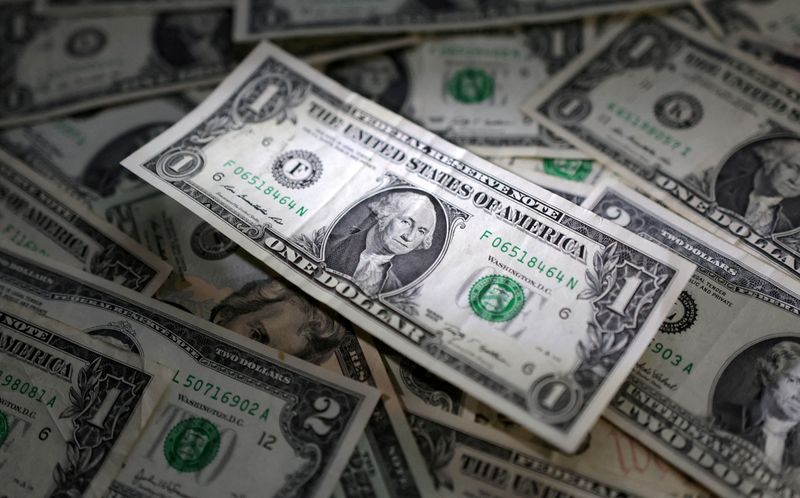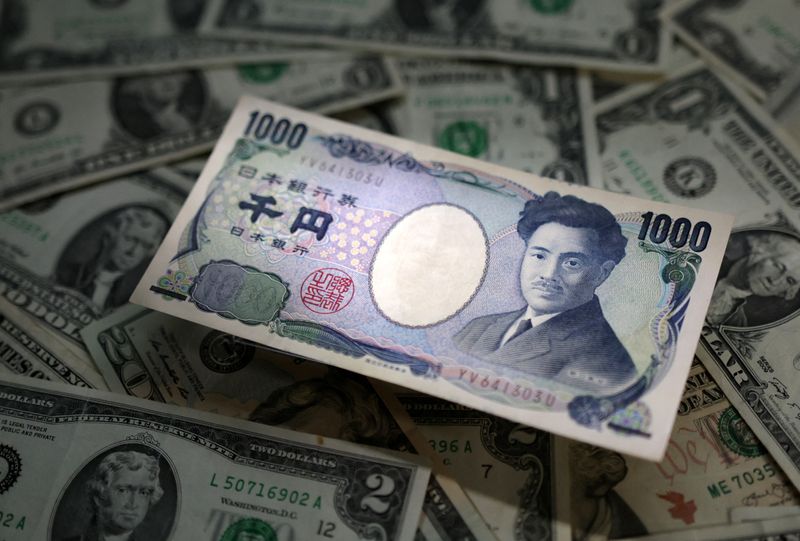
By Kevin Buckland
TOKYO (Reuters) -The yen pulled away from a two-week low versus the U.S. dollar on Wednesday after data showed Japanese wholesale inflation accelerated, supporting the case for a Bank of Japan interest-rate hike next week.
The dollar held firm against other major peers though, ahead of a highly anticipated reading of U.S. inflation that could provide clues on the pace of Federal Reserve interest rate cuts.
The Aussie sagged near a four-month low after a dovish tilt to the central bank’s policy outlook a day earlier. That also weighed on New Zealand’s kiwi, which slipped to the weakest level in more than a year. Reserve Bank of Australia Deputy Governor Andrew Hauser is due to speak later on Wednesday.
Investors are also watching for headlines from China’s closed-door Central Economic Work Conference, which runs this week. The Antipodean currencies got a boost at the start of the week after Beijing pledged more fiscal and monetary support for the economy next year.
The U.S. dollar eased 0.19% to 151.685 yen as of 0608 GMT, after rising as high as 152.18 yen overnight, the strongest level since Nov. 27.
Japan’s corporate goods price index (CGPI), which measures the price companies charge each other for goods and services, rose 3.7% last month from a year earlier, exceeding a market forecast for a 3.4% gain and marking the fastest annual pace of increase since July 2023.
Market-implied odds for a quarter-point rate hike by the BOJ on Dec. 19 last stood at 27%.
“The data is leaning towards a hike,” said Bart Wakabayashi, co-branch manager at State Street (NYSE:STT) in Tokyo. “Put it this way: if they raise, it’s a very defendable position.”
At the same time, “we’ve seen overall very strong economic numbers in the U.S.,” Wakabayashi said.
“All the reasons that we bought the dollar in the first place, they still persist,” he said. “If you ask me if I think we’ll see 145 or 155 (yen per dollar), at this point I’d say 155.”
The U.S. dollar index, which measures the currency against the yen and five other major peers, rose slightly to 106.38, after reaching a one-week high of 106.63 in the previous session.
Traders currently assign 85% odds to a quarter-point rate cut by the Fed on Dec. 18.
Economists expect both headline and core consumer prices to have risen 0.3% in the United States in November, from previous increases of 0.2% and 0.3%, respectively.
“Should this scenario materialise, there could be concerns that the Federal Reserve may not be able to cut rates as quickly as hoped, potentially benefiting the U.S. dollar,” said James Kniveton, senior corporate FX dealer at Convera.
In the case of Australia, “while the market anticipates early cuts, the RBA has not confirmed this plan, and there is a precedent for the market getting ahead of the RBA, only to later adjust its expectations,” Kniveton said.
Traders have ramped up bets for a quarter-point reduction in February to 62%, from closer to 50% a day earlier.
The Aussie eased 0.089% to $0.6373 after dipping to $0.63655 overnight for the first time since Aug. 5. The kiwi declined 0.12% to $0.5794 after earlier sliding to $0.57875 for the first since October of last year.
The European Central Bank decides policy on Thursday, with markets certain of at least a quarter-point reduction.
The euro was steady at $1.0527. Sterling weakened slightly to $1.2764.

The Swiss franc edged down to 0.8833 per dollar, with markets assigning 61% odds to a half-point rate cut on Thursday from the Swiss National Bank.
The Bank of Canada is seen as likely to cut by a half point later on Wednesday, which is helping pin the loonie near a 4-1/2-year trough at C$1.4195 per greenback from Tuesday. One U.S. dollar last bought C$1.41645.
This post is originally published on INVESTING.


